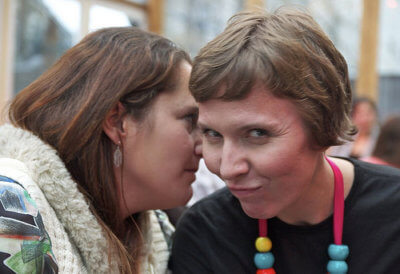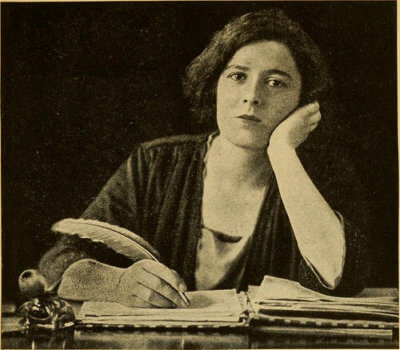How to Stop Judging Others (and Feel Better About Yourself)
by Andrea M. Darcy
In our previous article we discussed what judging others is all about. Why we do it, the benefits and pitfalls of judging people, and how we end up the sort of person who is always judgmental in the first place.
How to Stop Judging Others
The next question becomes, how to stop judging others all the time?
1.Know what you are dealing with.
Imagine if you said, “I want to be out of debt“, but never looked at your credit card statements. How successful do you think you would be? It’s really no different to saying “I want to stop judging” but not examining in detail what those judgments are and when they are happening.
TRY THIS:
Set your timer to go off every hour throughout the day (if you have meetings, etc, you can of course skip those times). When it goes off, take a moment to look back over the previous hour. Write down any and all judgemental thoughts you have had. Do this for at least three days. At the end, go through what you have recorded and see if there are any patterns. Do you tend to judge people for the same sorts of things? Do you have noticeable triggers? Times of day you are more judgmental?
Don’t beat yourself up for what you record and write – see tip number three below if that is an issue for you.
2. Get in control with mindfulness.
Do the judgments fly out your mouth before you can stop them?
One of the most effective ways to gain more control over our thoughts and actions is mindfulness.
It’s not an overnight technique. But it slowly but surely turns us into someone who is more conscious of our thoughts. You develop more of a capacity to slow down and step back.
TRY THIS:
Take two minutes to find somewhere private. Sit with your legs uncrossed, hands relaxed on your knees, and take a few deep breaths.
Start to pay attention to how the breath comes in and out of your nose. Where is the moment when the in breath becomes the out breath? Keep focussing on your breath, letting your thoughts come and go as they will.

By: del mich
After a few moments, bring your attention to your body – your feet, your hands, your shoulders (releasing any tension you find). Look around the room. How present do you feel?
You have just had a tiny moment of mindfulness. To learn the full technique of mindfulness, go read our free Guide to Mindfulness.
3. Rise above with self-compassion.
It would be great to say, “just raise your self-esteem!” Because judging others inevitably arises from a hidden lack of self-worth.
But raising your self-worth is easier said than done. And a faster route to feeling good about yourself has been found to be self-compassion.
Self-compassion is the art of being easier on yourself – read more in our article, “What is Self-Compassion?”
TRY THIS:
Think of a friend or loved one who is judgemental of others or you. Write a letter to them pointing out to them you know they are judgmental. Offer them some advice about how to perhaps be a little bit less judgemental and more the good self that is the reason you are his or her friend.
Now read this letter back to yourself, putting your name where their name is. What does it feel like to treat yourself like you treat your friends?
4. Switch perspective.
If life was a tall building looking out over a woods, but each floor had no stairs or doors, and you were stuck living on the top floor, what would you see? The tops of trees and birds. Trying to communicate your desire to fly with someone who is stuck on the ground floor only seeing trunks, roots, and ants would present a challenge.
Judgements often come from misunderstanding that others do not see or experience the world that we do. They have had a different childhood and experiences, and see the world through their own unique lens. To understand we need to switch perspective.
TRY THIS:
Try seeing the other person not just from his or her perspective, but from the eyes of people you admire, both real and imagined. How would the Dalai Lama see this person? How would they treat them? What about Peter Pan? What would he have to say?
Be careful not to fall into sympathy here, which is often just judgement disguised under being nice. Try empathy instead (read our piece on “Empathy vs Sympathy” for the difference). So “poor thing, she is annoying because she just doesn’t have a clue,” becomes, “She doesn’t seem aware of how other people perceive her, which must make life really challenging and come from a difficult childhood‘.
4. Find the balanced thought.
Borrow a page from cognitive behavioural therapy (CBT), a rigorous and evidence-based type of therapy that uses something called ‘thought charts’ to help you have more balanced, realistic thoughts.
Because here’s the thing – judgments are rarely realistic. They tend to be dramatic thoughts, one-sided, and inflated.
TRY THIS:
Write down the judgement you have about the other person. (He is a selfish attention-seeker). Now write the exact opposite, no matter how strange it feels. (He is a really caring person who puts others first). Look at these two opposites and find an in-between statement. (He can be selfish at times, but he sometimes does listen to others). Is it possible this final statement is true? Usually, you’ll find it is. People are rarely as black and white as we see them.
Want to take this one step further? Write down facts that support both statement one and two. What facts do you have he is an attention seeker? What facts do you have that he is sometimes caring and puts others first? Be honest. Find at least one example of the second statement being true. Unless you are dealing with one of the 3% of the population who really is a narcissist, you’ll find there will be something.
5. Seek support.
Is your habit of judging others so out of control it’s affecting your capacity to be in a loving relationship or sabotaging your career? Or do you just find it too hard to stop judging others and need help?
A counsellor or psychotherapist will help you become more aware of why you judge others. They will also help you feel better about yourself, so that you can in turn feel better about other people.
Talk therapies that can help you work on changing our habit of judging others include:
- compassion-focussed therapy
- mindfulness-based cognitive therapy (MBCT)
- cognitive analytic therapy (CAT)
- cognitive behavioural therapy (CBT)
- gestalt therapy
- transactional analysis
- dynamic interpersonal therapy (DIT)
- phenomenological therapy
- mentalisation-based therapy
- relational therapy
- person-centred counselling.
Harley Therapy connects you to highly trained and experienced counsellors, psychotherapists, and counselling psychologists in central London. Or try our online therapy platform which connects you with therapists UK-wide both in-person and via online or telephone.
 Andrea M. Darcy is a mental health and wellbeing expert, who has done some training in person-centred counselling and coaching. She often writes about trauma, relationships, and ADHD, and advises people on how to plan their therapy journey. Find her on Instagram @am_darcy
Andrea M. Darcy is a mental health and wellbeing expert, who has done some training in person-centred counselling and coaching. She often writes about trauma, relationships, and ADHD, and advises people on how to plan their therapy journey. Find her on Instagram @am_darcy






